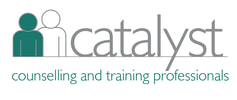Catalyst is a Guernsey-based consultancy offering confidential counselling, stress management, and mediation services to clients who self-refer, or are referred by their GP or their employer.
Catalyst's director, Felicity Quevâtre, is committed to working with clients towards change.
"People who contact Catalyst are often experiencing conflict, stress, or emotional difficulties. They are looking for new strategies to cope. Working together, we can view the problem from a new angle, and generate new ideas and coping strategies. Surprisingly, what was a problem can sometimes become a turning point. The work is not always easy, but can be immensely rewarding."
Catalyst's director, Felicity Quevâtre, is committed to working with clients towards change.
"People who contact Catalyst are often experiencing conflict, stress, or emotional difficulties. They are looking for new strategies to cope. Working together, we can view the problem from a new angle, and generate new ideas and coping strategies. Surprisingly, what was a problem can sometimes become a turning point. The work is not always easy, but can be immensely rewarding."
Why might I consider counselling?
Most people, most of the time, cope well with most things that happen to them, and the majority of people go through life without needing counselling. But occasionally something happens, or more frequently a combination of things happen, which make it difficult to cope as we normally would. If we are conscious of a good support network of family or friends, talking things through with someone we trust can be very helpful. If this is not possible, or if the situation is more than our usual support network can handle, counselling can be an alternative to consider.
How might counselling help?
If you are experiencing a crisis which is making it hard to cope with things which normally wouldn't bother you, talking to someone who is not involved in the situation can be helpful. The problem could be work-stress, a relationship difficulty, or some kind of change or loss, anxiety, depression, or any number of other things. Talking the issue through in confidence with a counsellor may help you to develop new strategies to cope better.
Counselling can offer you support in changing behaviour or changing a way of thinking. It's different from talking to a friend or family member, because the counselling is in confidence, and because the counsellor is not your friend or relation and does not have preconceived ideas about what you may think or do or say. The counselling relationship is about meeting you where you are, and working with you on where you would like to go. In counselling, you can discuss your hopes and fears and map a way through the difficulty.
If you would like to find out more about the service or to make an appointment, please go to the Contact page.
The decision to seek counselling is a sign not of weakness, but of strength: of hope for the future and determination to engage in positive change.
Counselling can offer you support in changing behaviour or changing a way of thinking. It's different from talking to a friend or family member, because the counselling is in confidence, and because the counsellor is not your friend or relation and does not have preconceived ideas about what you may think or do or say. The counselling relationship is about meeting you where you are, and working with you on where you would like to go. In counselling, you can discuss your hopes and fears and map a way through the difficulty.
If you would like to find out more about the service or to make an appointment, please go to the Contact page.
The decision to seek counselling is a sign not of weakness, but of strength: of hope for the future and determination to engage in positive change.
